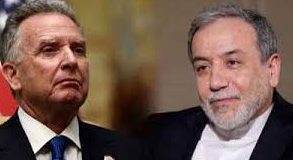Educators address the risks of harmful online content shaping students’ attitudes.
Concerns over the influence of Andrew Tate’s controversial social media presence have led a west London school to host dedicated assemblies addressing the issue. Matt Adams, the school’s head of performing arts, initiated the sessions to counteract the spread of Tate’s messages among pupils.
Teachers warn that Tate’s online content, which promotes toxic masculinity and misogyny, could act as a “gateway drug” leading children to encounter more harmful material. Mr Adams observed that some boys in his school either support Tate’s views outright, excuse them, or dismiss criticism by claiming his words are misquoted.
“Tate’s messages glorify a lifestyle of materialism and arrogance, which appeals to young men who believe they need to emulate him to succeed,” said Mr Adams. He noted that some students accept Tate’s distrust of governments and taxes as credible, leading them to assume his other views are also valid.
Andrew Tate, a former kickboxer and social media influencer, has millions of followers across platforms. His notoriety stems from controversial statements, including one suggesting women should “bear some responsibility” for their own assaults. His content has reached over 12 billion views on TikTok through hashtags associated with his name.
Another teacher, Matthew Simpson, who works at a secondary school in Bristol, reported that students often reference out-of-context memes about Tate, such as the colour of his Bugatti. “Many are unaware of the broader context of his misogynistic views and the damage they cause,” he said, adding that brief clips of Tate’s content risk leading young viewers toward his more dangerous rhetoric.
Currently detained in Romania on charges of human trafficking and rape—allegations he denies—Tate remains a divisive figure. While his following persists, educators like Geoff Barton, general secretary of the ASCL teachers’ union, recognise the need for urgent action.
“There’s widespread concern among school leaders regarding the harmful material Andrew Tate promotes. While most boys remain respectful, some are drawn to his rhetoric, posing challenges for educators and society at large,” Barton said.
These assemblies reflect a proactive effort by schools to safeguard impressionable minds from online content that undermines respect and equality, fostering critical thinking among the next generation.








